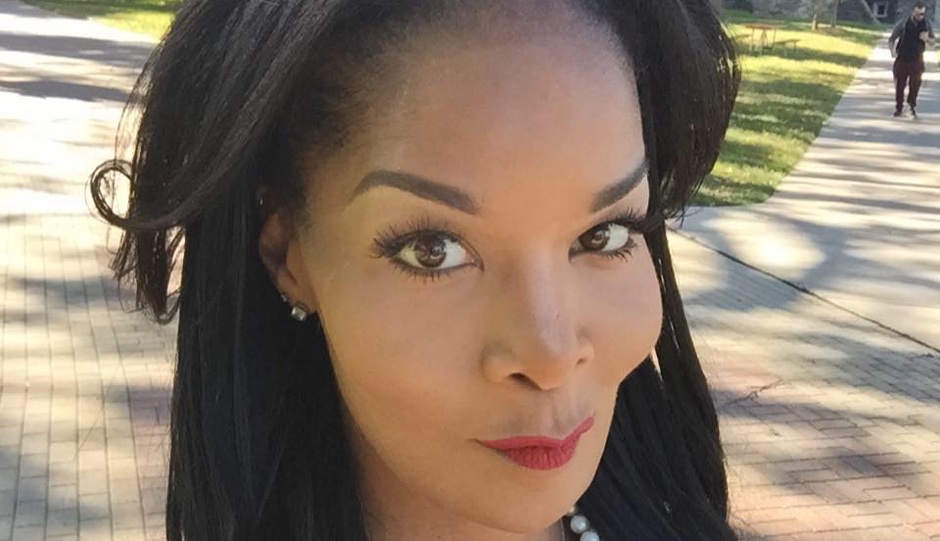LGBTQ&A: Sharron Cooks

Sharron Cooks
Sharron Cooks is a trans woman activist of color and the founder and CEO of Making Our Lives Easier LLC. We chatted with her about her community-building and being the only trans woman of color delegate participating in the Democratic National Convention.
Tell us a little about yourself.
I have a B.A in philosophy from Arcadia University, with a focus on ethics. I’m the founder and CEO of Making Our Lives Easier LLC, which is a consulting firm that provides quality resources and information to underrepresented communities through activism, advocacy, community organizing, and political advising. I work in community relations at the Educational Justice Charter School, which is an initiative that aims to provide an accepting, safe educational environment for students and an interdisciplinary learning experience in the fields of science, technology, engineering, art, math, and community service. It was my years of volunteerism at the William Way LGBT Community Center that helped me realize and understand the strong impact that giving back to the community has on both the giver and the receiver.
That’s an impressive amount of service on a regular basis. What keeps you going?
My family and friends are very important to me. I am extremely fortunate to have kind, supportive, generous and loving people in my life. I’m immensely thankful for them. I’m very passionate about social activism and change. Being of service to others gives me meaning and purpose and that helps me grow both personally and professionally. I enjoy connecting with people.
What inspired you to develop Making Our Lives Easier LLC?
The lack of quality resources and information available and accessible to marginalized and underrepresented communities, specifically trans women of color. I’m very passionate about equal rights for everyone, and as a woman of trans experience who is of color, I know firsthand the struggles many of us face every day in life by society, such as the lack of public accommodations, the lack of employment, and housing non-discrimination legislation both on the state and federal level. I also understand the social stigmas, stereotypes, constant rejection — the constant emotional, psychological, and, in many cases, physical abuse of LGBTQ people, especially those that involve trans women of color. Building solid community and individual relationships, and having supportive leadership and a passion for challenging an exploitative, oppressive, unfair system, are the keys that allow Making Our Lives Easier LLC to make lives easier.
You mentioned barriers that organizations within the community face when trying to address these problems efficiently. What makes your organization unique in closing the gap?
Often times, social-service agencies have resources that are limited, which causes many LGBTQ and especially trans women of color to engage in high-risk activities. This is why I developed an organization that has facilities working to bridge the gap between the demographics of people many social-service agencies, political organizations, community organizations, and companies serve. My activism, advocacy, community organizing and political advising consulting firm is a way to make a positive, life-changing impact on so many people in our community.
How do you spread activism in your community to address the recurring deaths of trans women of color nationwide?
It’s complex, and I say that because there are so many factors that contribute, such as a lack of family and community support, lack of legal protections, lack of community resources, neglect, lack of self-value, public misconceptions, and discrimination, just to name a few. What many of us in the trans women of color community do is try to provide as much support to one another as we can to reduce harm and risks. I have facilitated workshops and support groups, organized events, and participated in marches and protests, all as a reminder of how important it is to bring awareness and encourage people to take action to ensure justice for trans women of color who have been murdered. They did not simply die — someone took their life because of social stigmas. And as an activist it is my obligation to trans community members to advocate for trans rights and protections, and for us to be treated with the dignity and the respect that all people deserve.
You are the only trans woman delegate of color participating in this year’s Democratic National Convention. What are you most looking forward to?
As the only African-American trans woman serving as a delegate during the Democratic National Convention, it is my hope to bring a better understanding of the issues trans people of color face. Our challenges, our experiences, our voices and our needs. I’m looking forward learning more about the legislative and political electoral process, as well as engaging and connecting with legislators and fellow delegates in order to further build a solid network of people who share a passion for social justice and equality.
What can the Gayborhood and the city do overall to improve the quality of life for transgender individuals overall?
Overall, the Gayborhood and the city of Philadelphia have made great legislative accomplishments for the trans community, such as the Trans Rights Bill and public accommodations ordinances, for which I’m immensely grateful. Our legislators, community leaders, activists, and organizations that have advocated for trans inclusion have contributed much to the quality of our life. With that being said, there’s always more ways to improve, such as enhancing opportunities for gainful employment, leadership, training, and educational programs. There are so many gifted, talented, educated, experienced and skilled trans-identified individuals who have given so much to the Gayborhood and the city. Yet, very few if any trans-identified individuals are in executive positions and/or own and operate a “for trans by trans” organization or company in the Gayborhood and city overall. With Philadelphia being the most LGBTQ-friendly city in the nation, trans people still have barriers to liberation. There could be more qualified trans-identified individuals in administrative and upper-level management positions. This is how, from my perspective, the Gayborhood and the city could further improve our quality of life.


